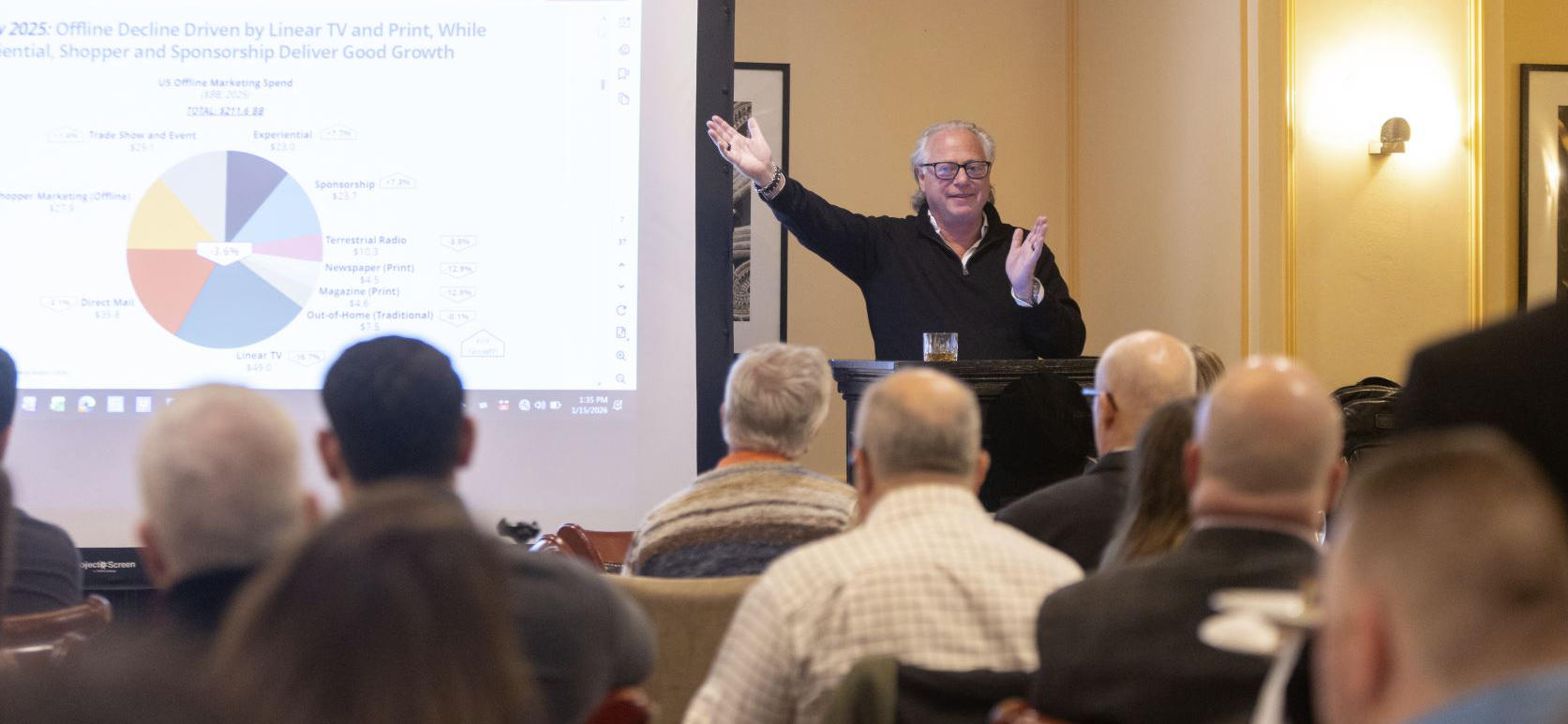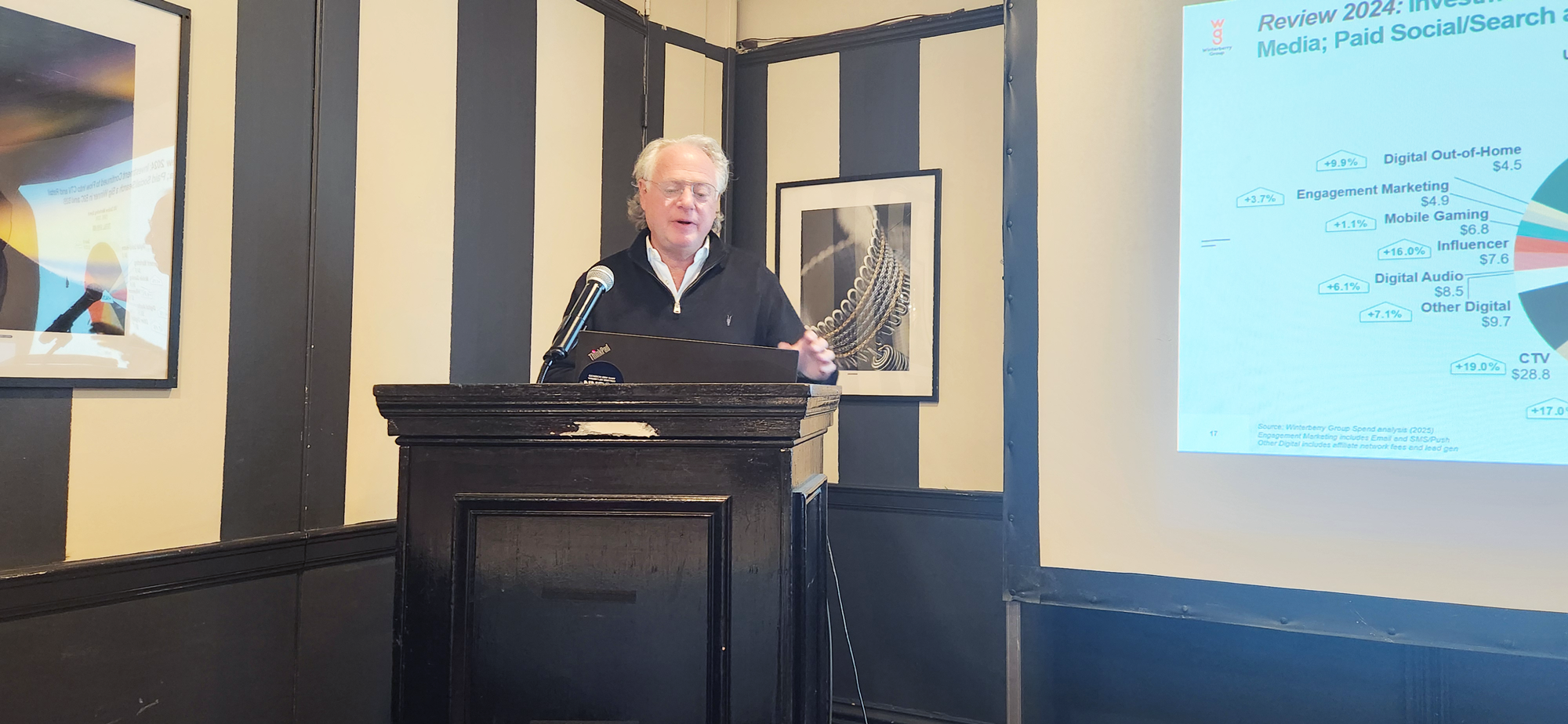Provocateur

Forget data, forget technology; marketing is all about people. That’s why talent is the most critical issue for any marketing leader looking to the future.
By talent, I’m not simply talking about attracting all the bright young things to our industry, but also about looking after the great people we already have in our marketing teams. By guarding their wellbeing, our marketers — at every level and in every marketing function— will perform at their best more of the time.
This is the human side of marketing. Alongside their roles as brand guardian, customer voice, growth driver, and value creator, marketers are real people with real pressures. It’s all too easy to forget that the people on your marketing team might also be caregivers to children or parents, soccer or Little League coaches, volunteers for a nonprofit, or competitive athletes — roles that are often integral to their identities and happiness.
And I’m a big believer in the benefits of being able to be your whole self at work and not be afraid to admit to vulnerabilities.
This is one of the reasons why The Marketing Society has been looking at the marketing industry through the lens of bravery — and encouraging members to do the same. We know that, now more than ever before, bold marketing leadership creates and safeguards great brands, so marketers must become braver in everything they do. For many marketing leaders, encouraging bravery among their staff requires a mind-set shift, as well as a change in the conversation.
Instead of just talking about success, marketing leaders should share their stories of the failures they learned from and encourage their teams to do the same. Instead of talking solely about brilliant leadership, discuss bad leadership and how to improve it. The biggest cause of stress at work is inconsistent management, so how can we learn from it and make changes to be more consistent?
We as leaders can cast a big shadow and the impact we intend is not always the impact felt. That why The Marketing Society has been hosting conversations among our members on these topics.
We’ve also been encouraging our members to open up about mental health, one of the last great taboos at work. It’s fine to admit to feeling under the weather, but what about a panic attack or depression?
Mental health affects all of us. According to a survey by ComRes for BBC Radio 5 Live, 49 percent of respondents said they would be unlikely to tell their boss about problems such as anxiety, depression, or bipolar disorder. This culture of fear and silence around mental health is costly. When asked how workplace stress had affected them, more than 21 percent of those polled by Mind said they had called in sick to avoid work.
So, if we accept that talent is a critical issue for the future, we must also acknowledge that looking after the wellbeing of our marketers is essential.
Employees are our customers, too
There are many, many things that have changed in the marketing industry over the past few years, but there is one constant: The best chief marketing officers are always those who represent the customer in the boardroom, and who understand that they must know their customers as a whole person, not as a number on a spreadsheet, a pair of eyes watching a TV ad, or a hand on a smartphone.
It’s time we did the same for our marketers. Yes, they might have to be a digital whiz, or creative genius, or superior data cruncher, as well as a customer whisperer, growth driver, and value creator. But they’re also your neighbor, the frazzled parent in the playground, the commuter on their laptop, the dog walker in the park.
Set against the tectonic changes are marketers facing — ever-rising customer expectations, ever-proliferating technologies, and ever-shifting data policies and platforms — we as marketing leaders need to recognize the humanity in everything we do. We need to be brave enough to be our whole selves at work and encourage our staff to do the same. In doing so, we will create an environment that nurtures talent and cultivates excellence. And, as a result, our team’s performance will improve — and so will our results.
Adapted from Gemma’s opinion column, “Set against the tectonic changes in our industry’s
currency, we need to recognise the humanity in everything we do,” on Raconteur.

About the Author
Throughout her career Gemma has believed in and championed being brave, the power of connections, and the belief that together we can make a difference. Since she became Chief Executive of The Marketing Society in January 2017, Gemma has led the its Brave agenda on a global scale. She is an advocate of bringing your whole self to work and is on a mission to tackle taboos, push boundaries, and create comfortable spaces to have the uncomfortable conversations that matter.
Gemma launched the Marketing Society’s initiative Marketing4Good in 2013 which has since helped over 150 charities. The initiative became Marketing4Change in July 2017 as a result of the Marketing Society’s support of mental health with the purpose to remove its stigma from the workplace by creating safe spaces.
An entrepreneur at heart, Gemma founded Cabal — a hand- picked club of extraordinary, restless (and humble) people who create memorable and unique experiences, do good together for each other and others — in 2013. In 2016 she became the first female president of the Solus Club in its 90-year history.
Find Gemma online at @gemmahgreaves and @themarketingsoc








